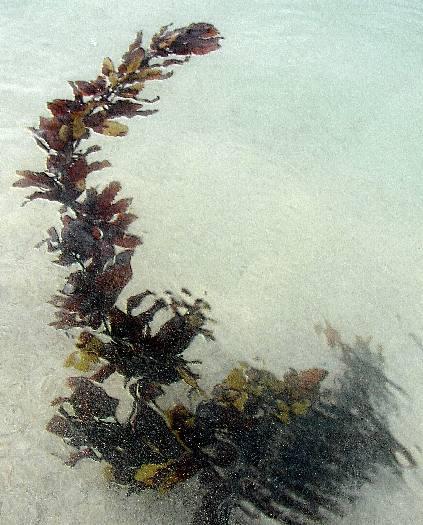| General Poetry posted April 24, 2015 | Chapters: |
...5 6 -7- 8... 
|
      |
Is now beneath the sea.
A chapter in the book Littoral
Eccles-by-the-Sea
by Pantygynt
 Recognized |
Eccles is one of several communities along the Norfolk coast that either are no more, being completely drowned, or are in the process of going that way. Legends quickly grow up around these inundated places. Almost universal is the one that goes: "... and the seas are rough they say you can still hear the church bells ringing!" And then there was the fisherman whose oar struck the church tower at low tide. The truth is probably less romantic as these places quickly silt up once the sea has reclaimed them.
In the first line of the third stanza is a play on words and not intended to be souls. The sole is a flat fish that likes to lie on the sea bed. Kelp, dabberlocks and bladder wrack are all varieties of seaweed.
The phrase sea-change has been imported into everyday speech to imply a great change in whatever is under discussion. It was coined by William Shakespeare in his play The Tempest, in Ariel's Song.
From the 17th Century attempts have been made to drain the large shallow inlet dividing Norfolk from Lincolnshire, known as The Wash and much of what is now cultivated land was in medieval times under water at least at high tide. King John is said to have lost the crown jewels there while attempting a crossing.
These days, thinking on sea defences has changed and many previously reclaimed areas of the Norfolk coastline are being handed back to the sea as salt marsh to create a buffer zone between the sea and the agricultural land rather than building huge concrete defenses. This practise will also create an excellent habitat for wildfowl as we shall see in the next chapter.
Pays
one point
and 2 member cents. In the first line of the third stanza is a play on words and not intended to be souls. The sole is a flat fish that likes to lie on the sea bed. Kelp, dabberlocks and bladder wrack are all varieties of seaweed.
The phrase sea-change has been imported into everyday speech to imply a great change in whatever is under discussion. It was coined by William Shakespeare in his play The Tempest, in Ariel's Song.
From the 17th Century attempts have been made to drain the large shallow inlet dividing Norfolk from Lincolnshire, known as The Wash and much of what is now cultivated land was in medieval times under water at least at high tide. King John is said to have lost the crown jewels there while attempting a crossing.
These days, thinking on sea defences has changed and many previously reclaimed areas of the Norfolk coastline are being handed back to the sea as salt marsh to create a buffer zone between the sea and the agricultural land rather than building huge concrete defenses. This practise will also create an excellent habitat for wildfowl as we shall see in the next chapter.
Artwork by cleo85 at FanArtReview.com

You need to login or register to write reviews. It's quick! We only ask four questions to new members.
© Copyright 2024. Pantygynt All rights reserved.
Pantygynt has granted FanStory.com, its affiliates and its syndicates non-exclusive rights to display this work.

